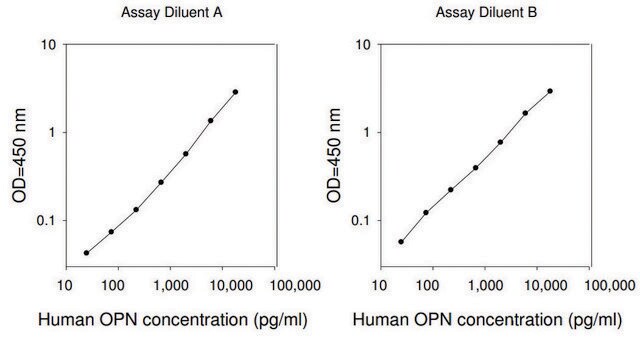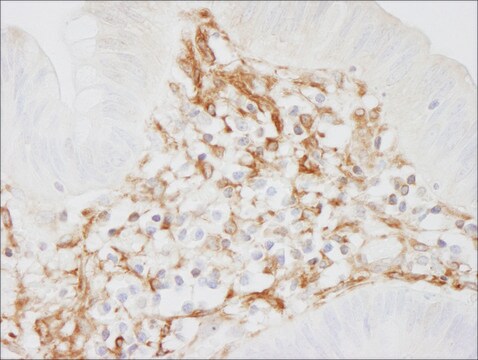O2260
Mouse Osteopontin
recombinant, expressed in NSO cells, powder, suitable for cell culture
Synonym(s):
Bone Sialoprotein-1, Early T Lymphocyte Activation Protein-1 (ETA-1), OPN, Secreted Phosphoprotein 1 (Spp1)
About This Item
Recommended Products
product name
Osteopontin from mouse, >95% (SDS-PAGE), recombinant, expressed in NSO cells, lyophilized powder, suitable for cell culture
biological source
mouse
Quality Level
recombinant
expressed in NSO cells
sterility
sterile
Assay
>95% (SDS-PAGE)
form
lyophilized powder
mol wt
30 kDa by SDS-PAGE (reducing)
65 kDa by SDS-PAGE (reducing) (doublet)
packaging
pkg of 50 μg
technique(s)
cell culture | mammalian: suitable
impurities
endotoxin, tested
UniProt accession no.
shipped in
dry ice
storage temp.
−20°C
Gene Information
mouse ... Spp1(20750)
Application
- to study its role in a mouse model of preterm brain injury
- as a positive control to analyze the relationship between the vascular calcification process and osteopontin (OPN) overexpression in the neointima of atherosclerotic plaques
- to study its interaction on the crystal growth process of hydroxyapatite in agarose hydrogels
Biochem/physiol Actions
Physical form
Analysis Note
Storage Class Code
11 - Combustible Solids
WGK
WGK 3
Flash Point(F)
Not applicable
Flash Point(C)
Not applicable
Certificates of Analysis (COA)
Search for Certificates of Analysis (COA) by entering the products Lot/Batch Number. Lot and Batch Numbers can be found on a product’s label following the words ‘Lot’ or ‘Batch’.
Already Own This Product?
Find documentation for the products that you have recently purchased in the Document Library.
Our team of scientists has experience in all areas of research including Life Science, Material Science, Chemical Synthesis, Chromatography, Analytical and many others.
Contact Technical Service







